It’s a common assumption that a country’s natural resources directly determine its economic status. But is this the case in Africa? Surprisingly, not quite. In this article, I’ll clarify this common misconception and set the record straight on the wealth of African countries—focusing on natural resources, followed by economic figures.
Despite a wealth of gold, diamonds, and oil beneath the African soil, this doesn’t guarantee a towering GDP or a high standard of living for its citizens. And this can even depend on the exact region or province of a country, as we noticed while traveling in South Africa on the wild coast, compared to the Eastern Cape, as an example.
In the following section, I will show you a list of the top ten African countries with considerable natural resource wealth as of 2024, but not necessarily for its citizens!
This will be followed by the actual 10 richest countries in Africa further down the article, maybe then you can draw your own conclusions!
Top 10 African Countries Enriched by Natural Resources
While Africa’s narrative is sometimes skewed by a focus on poverty, the continent’s actual wealth lies beneath its soil. Moving past common misconceptions, I’ll introduce you to the African countries whose natural resources redefine what it means to be “wealthy” here.
Note that these nations, while rich in resources, may not always lead to economic prosperity.
1. Nigeria
With its vast oil reserves, Nigeria stands tall amidst African nations. Beyond oil, it boasts iron ore, coal, limestone, and bitumen, painting a diverse portfolio of natural wealth.

2. South Africa
South Africa is a giant when it comes to mineral reserves. Its soil is laden with gold, diamonds, platinum, and manganese, to name a few.
And let’s not forget the exportation of coal, which we were definitely surprised by seeing so many trucks transporting coal on the road on our tour in Kwazulu Natal!
This latter is kind of a sad story though, as we talked to a farmhouse owner at Piet Retief, claiming that South Africa has plenty of coal to make their own electricity and thus not have ” load shedding “, but that that exporting the coal is “all about the money”. So sad!
In the video below, you can see at about 3 minutes in the video, that the Chinese are building brand new roads, just for the transportation of coal in the Kwazulu Natal region. And I can tell you now: in that region, there are not a lot of people using the roads or who even have a car, if you ask me, this region is poor!
3. The Democratic Republic of Congo
The riches of this country are found in its copper, diamond, gold, and coltan reserves. The last is particularly critical as it’s used in electronic devices worldwide. But as you can see in the list below of the actual richest countries, Congo isn’t listed.

4. Libya
Libya is another oil-rich country, that has oil reserves that account for the majority of its national revenue, acting as the backbone of its economy.

5. Botswana
Botswana’s diamond mines are world-renowned, providing significant GDP and investment influx, with the potential for more intensive resource exploration.

6. Guinea
Guinea’s bauxite reserves are the largest globally, feeding the demand for aluminum, alongside its rich deposits of iron ore and gold.

7. Zambia
Zambia relies on its copper mines. It stands as the second-largest producer in Africa, with cobalt as a strategic accompanying asset.
A very large plus, literally, on the touristic side, are the amazing Victoria waterfalls.
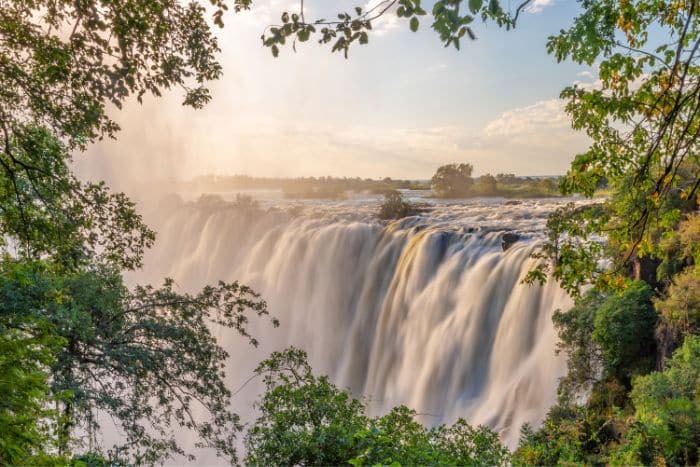
8. Angola
Angola’s oil and diamond reserves are a source of immense wealth, yet its full potential remains untapped due to varying economic challenges.

9. Ghana
Ghana’s gold mines have been an economic staple for years. Its oil reserves, discovered recently, promise a significant increase in national wealth.

10. Algeria
With its abundant oil and gas reserves, Algeria is a major supplier of energy but echoes the narrative of resources not equating to overall economic bliss, mainly because of politics and internal struggles.

Despite the evident natural wealth, these African countries’ formidable challenge is the translation of their resources into sustainable economic growth and development.
The Paradox of Wealth: Natural vs. Economic Prosperity
Across the continent of Africa, many countries with an abundance of natural resources such as oil, minerals, and metals, don’t top the lists of economically wealthy nations. This paradox calls for a closer look.
A key challenge is turning natural wealth into actual prosperity. Countries often require robust infrastructures, sound policies, and strong governance, elements which may be lacking.
Take Nigeria as an example. Despite being Africa’s largest oil producer, a considerable chunk of its population lives in poverty. Here we see how external factors such as global oil prices, internal conflict, and corruption can impede a nation’s journey to wealth.
Similarly, governance plays a vital role. Effective management of resources can mean the difference between wealth that benefits all and a fortune that enriches a select few.
In addition, foreign investment is double-edged. When managed well, it can bring the necessary technology and expertise to harness resources responsibly and sustainably.
However, if not, it can lead to exploitation and environmental degradation, both counterproductive to long-term economic health.
To compare, we will now show you the top 10 richest countries in Africa that are thriving economically!
The ACTUAL top 10 richest countries in Africa GDP Per Capita
When measuring a nation’s wealth, GDP per capita is a crucial metric. It takes the country’s economic output and divides it by the population, showing the average income per person.
These nations might also face internal struggles, from political instability to civil unrest, which can hamper economic performance.
These economies stand out in Africa for their wealth as measured by GDP per capita, but each has its unique narrative, its own blend of triumphs and trials:
( this list is made purely per capita, while other countries may be richer, but have a bigger population! This is why you might see different results of this top 10 on the internet ! )
1. The Seychelles
The Seychelles stands proud at the top of the list, boasting an economy that thrives on tourism and a vivid blue ocean that pulls travelers from across the globe. With no significant internal conflicts, this island nation represents a model of small-scale prosperity.
With a PPP – (Purchasing Power Parity) of US$19,470.
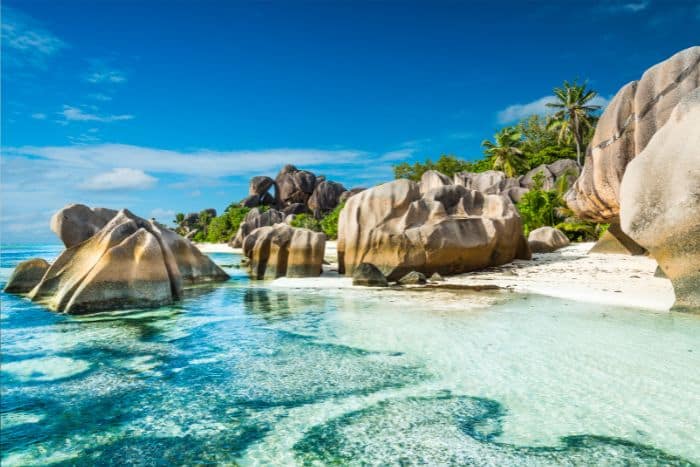
2. Mauritius
Mauritius follows, with its diverse economy spanning textiles, tourism, and financial services. Good governance and forward-thinking economic policies have laid a foundation for a stable and flourishing country. (PPP- US$12,700)

3. Equatorial Guinea
Equatorial Guinea may come as a surprise to some, holding a spot on this list thanks to its oil wealth. Yet, the country has faced criticism over governance issues, which reminds us that natural resources alone do not guarantee equitable prosperity in the future.
(PPP-US$11,300)
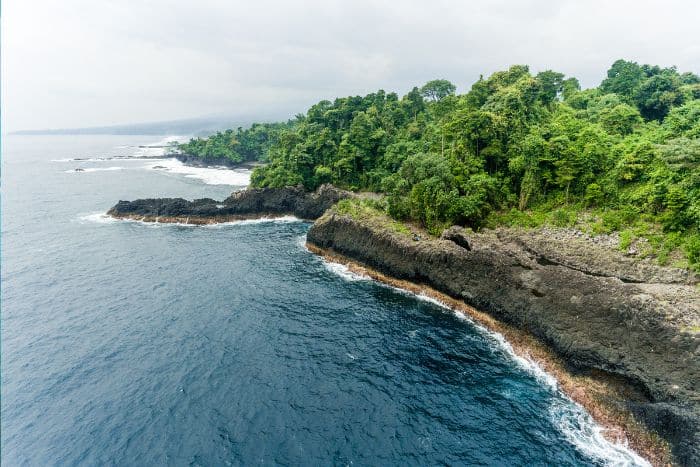
4. Gabon
Gabon’s wealth is also oil-based, bolstered by proactive efforts to diversify its economy. While political stability has been a concern, Gabon is steadily marching towards broader economic horizons. (PPP- US$10,300)
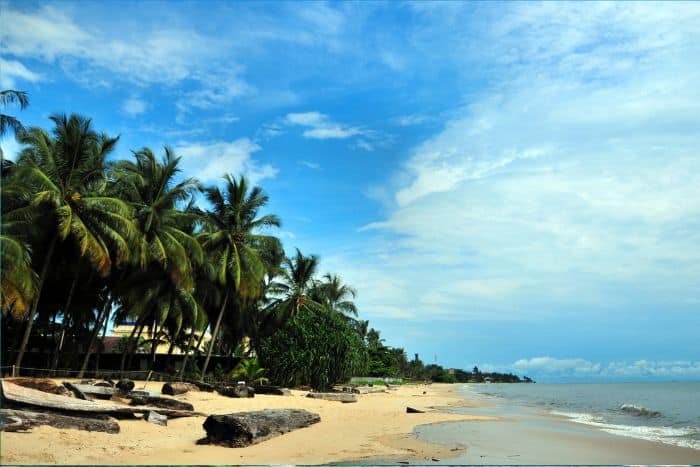
5. Botswana
Botswana is a diamond-producing leader and stands out for its good governance and judicious use of natural riches to drive national wealth. Its long-standing democratic traditions have fostered economic stability. It is a nice country to visit as a tourist as well (more about that later) (US$18,300)
6. Namibia
With its mining prospects, especially in uranium, Namibia has leveraged these resources while also grappling with economic disparities. Its governance structure is actively addressing these challenges to fully capitalize on its natural resources. (US$12,100)
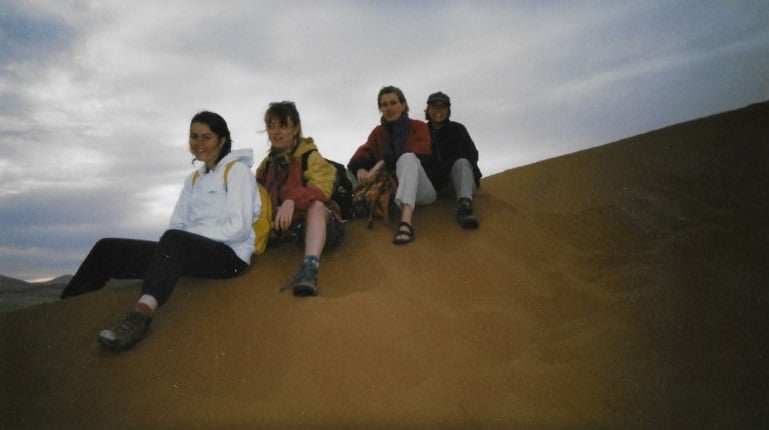
7. South Africa
South Africa ranks high, celebrated for its industrial base and rich mineral resources. Nonetheless, the nation’s struggle with socioeconomic inequality and political complications is reflected in its position on this list. While apartheid is over, it still reflects on personal wealth. (US$6,300)
8. Egypt
With a history as ancient as civilization itself, Egypt has more recently focused on industrialization and service sectors to solidify its status among Africa’s economic giants. Despite facing political challenges, it holds a pivotal economic role in the continent.

9. Algeria.
Algeria’s wealth is tied to its abundant oil and gas reserves. While these resources have underpinned the economy, the quest for diversified growth and political stability is ongoing. (US$6,200)
10. Libya
Libya, another country wealthy in oil, confronts the repercussions of internal conflict that has hindered its full economic potential. The aim for a harmonized society and government continues to hold significant importance for its economic trajectory. ( US$19,811)
Source for these numbers: World Bank: https://data.worldbank.org/indicator/NY.GDP.PCAP.PP.CD?locations=A9
Conclusion: A Glance Beyond the Surface
Recognizing that a nation’s wealth isn’t solely defined by its natural endowments allows us to better understand the complexities of prosperity.
TRANSFORMING resources into lasting wealth involves combating corruption, ensuring political stability, and prioritizing education and health care.
Africans deserve to reap the rewards of their land’s riches, and it’s the collective responsibility of governments and international partners to see this vision come to fruition.
If you would like to discuss this topic with me, please leave a comment down below in the comment section or join me on my social media pages for more pictures, videos and stories about my travels to Africa!
I wish you happy travels!
Kind regards,
Lizzy
I now have a YouTube channel as well!
YouTube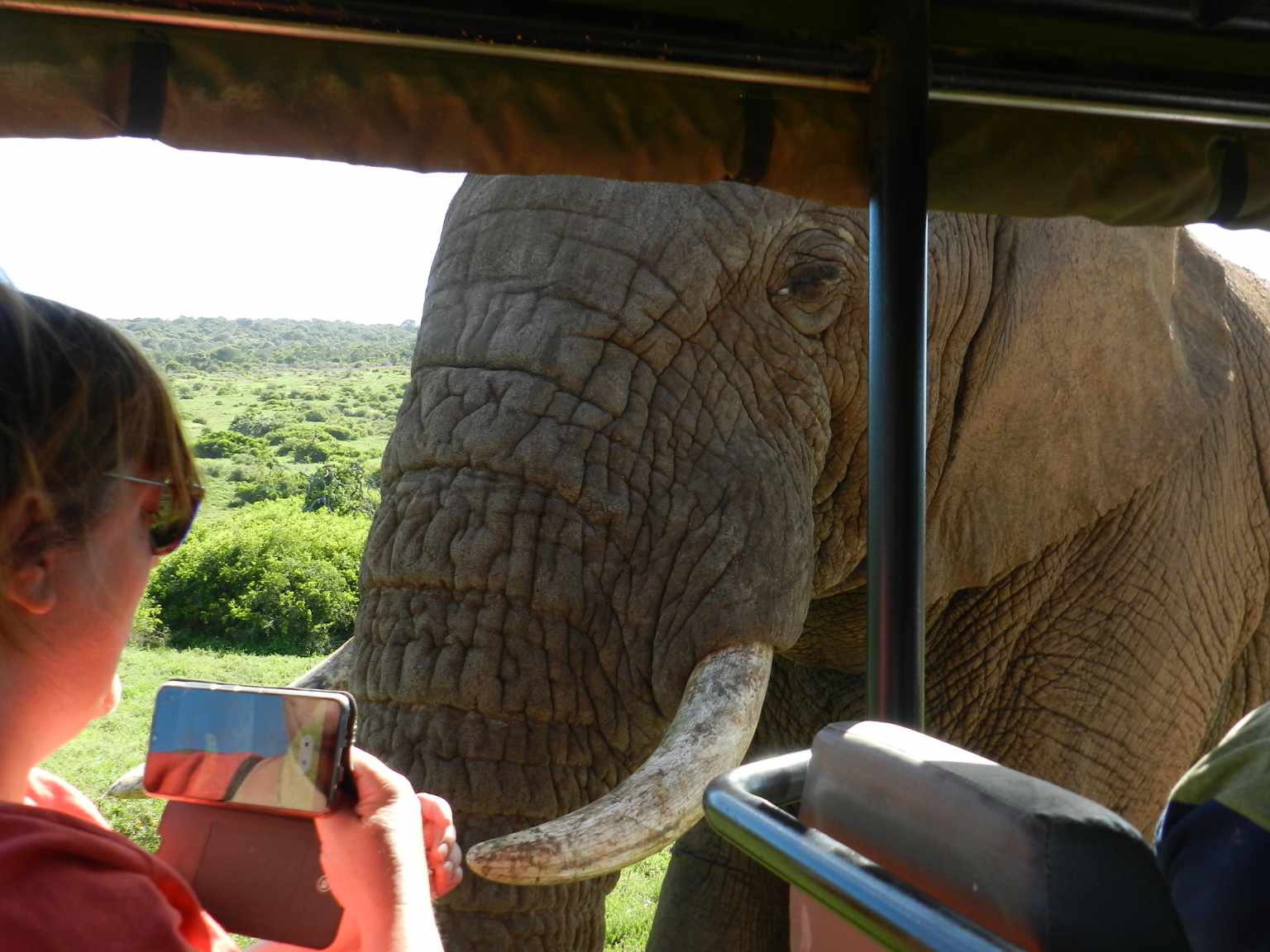
Hello Africa travellers!
Who am I? Well, the least you can say is that I am quite crazy about Africa, its nature, its climate, its culture, and more.
As a young woman in my twenties, I had already traveled to several African countries by traveling along in an overlander on my own and mostly camping ( or glamping ) and just fell in love with the diversity of it all.
So much, so that at the age of 26, I went back to university to study biology, which, unfortunately, I couldn’t finish because of health reasons (yes, I got sick from a tropical disease, oh cynicism). But this did not stop my dream of traveling back to Africa several times, and I still do.
My dream was back then to leave Europe and go study animal behavior, especially the elephants (sure, that’s every girl’s dream haha), but I am also very much intrigued by hyenas and other “ugly African animals“.
So, I “kind of” have a little bit of a scientific approach to my articles, when I write about African birds, for example. And most of all: the passion.
But life goes on, you move from one side of the country to the other, you get sick again and top it off with lower back problems, and before you know it, you are over 50 hahaha!
Now, I still travel to Africa, but take it a bit “easier” than the good old camping days, and stay in comfortable, yet affordable accommodations, together with my husband Wouter.
These are some of the countries I have traveled to: Kenya, Tanzania, Zanzibar, Malawi, Zambia, Zimbabwe, South Africa, Namibia, Botswana, Tunisia, and a little bit of Lesotho LOL .
While clearly not being African territory, but Spanish, I also visited Gran Canaria and Tenerife, and location-wise, I consider them “African”, because of their climate and nature, sue me :-p
The last trip I took was to South Africa in the year 2023, and it sure got the fevers for Africa back! From the Barberton mountains to the Drakensberg and the Southcoast, one month wasn’t enough at all to see the whole country, so we’ll be back! At ease and with a little bit more luxury than in my younger days haha!
I wish you happy travels!
Kind regards
Lizzy

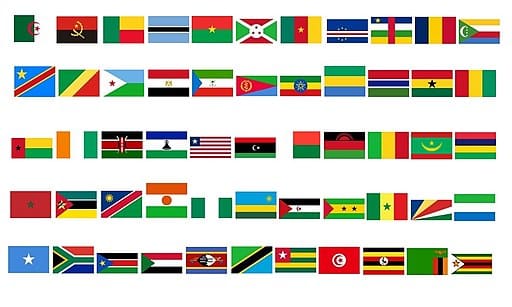
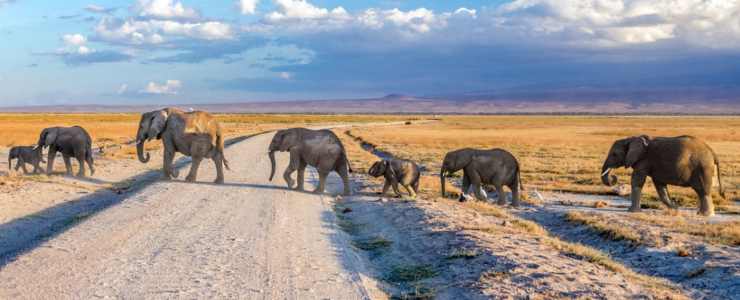

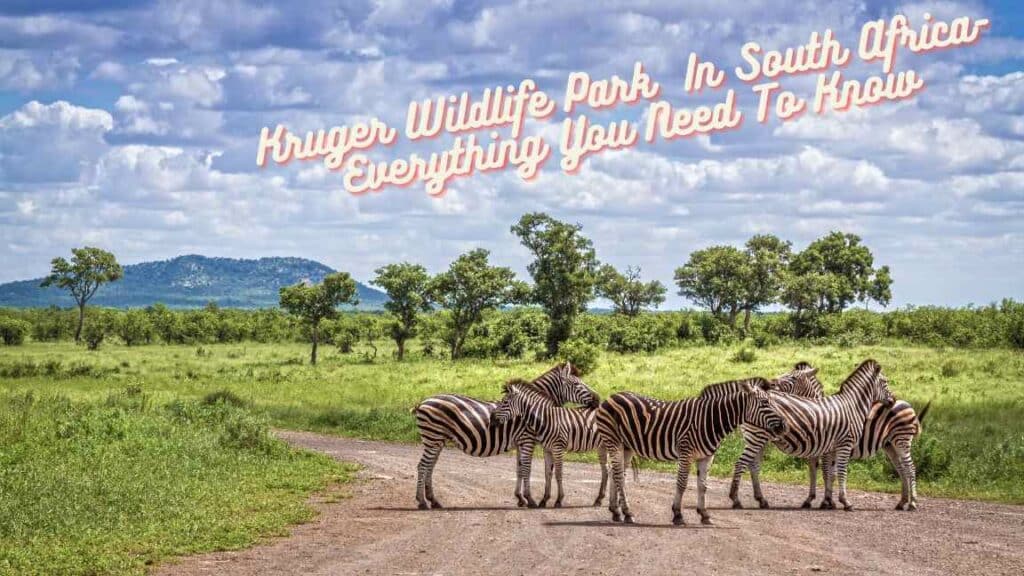
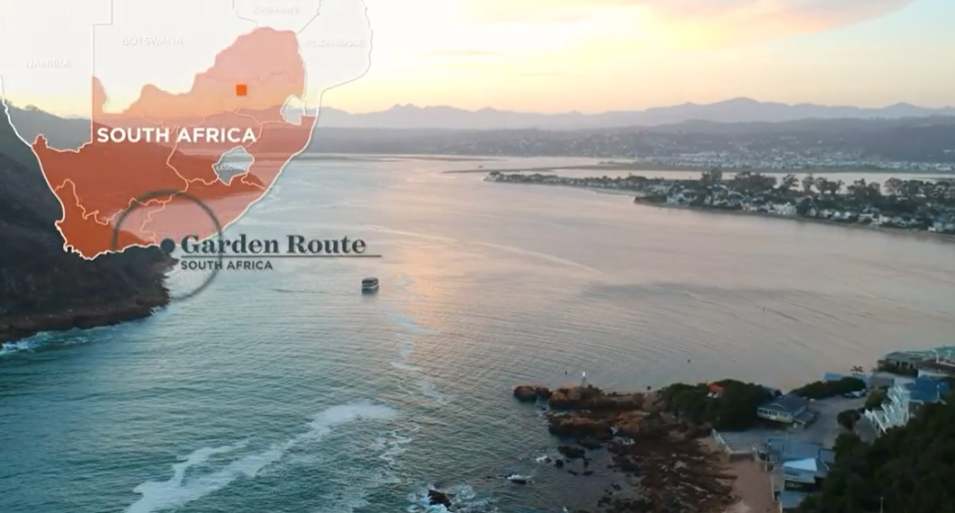
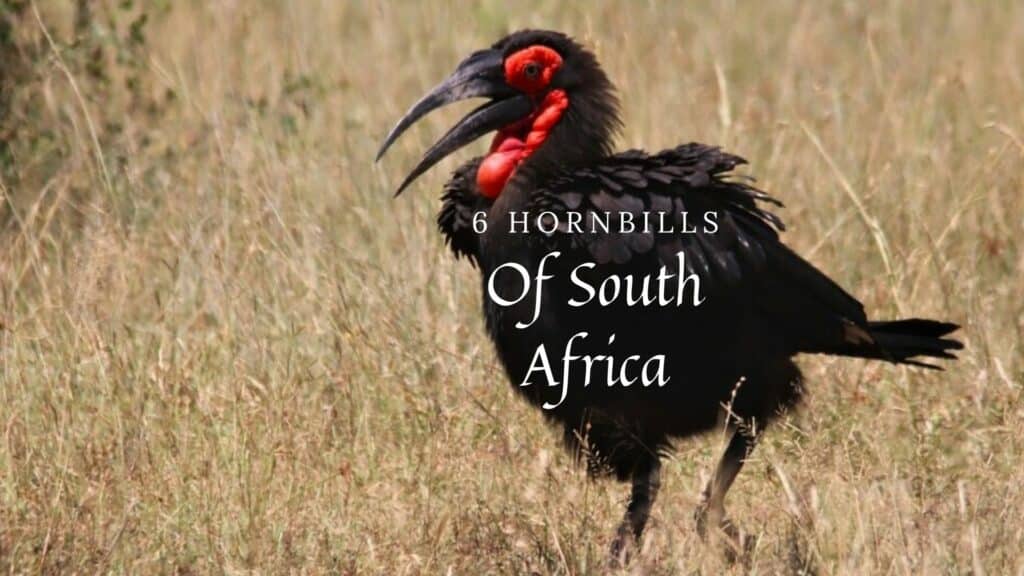
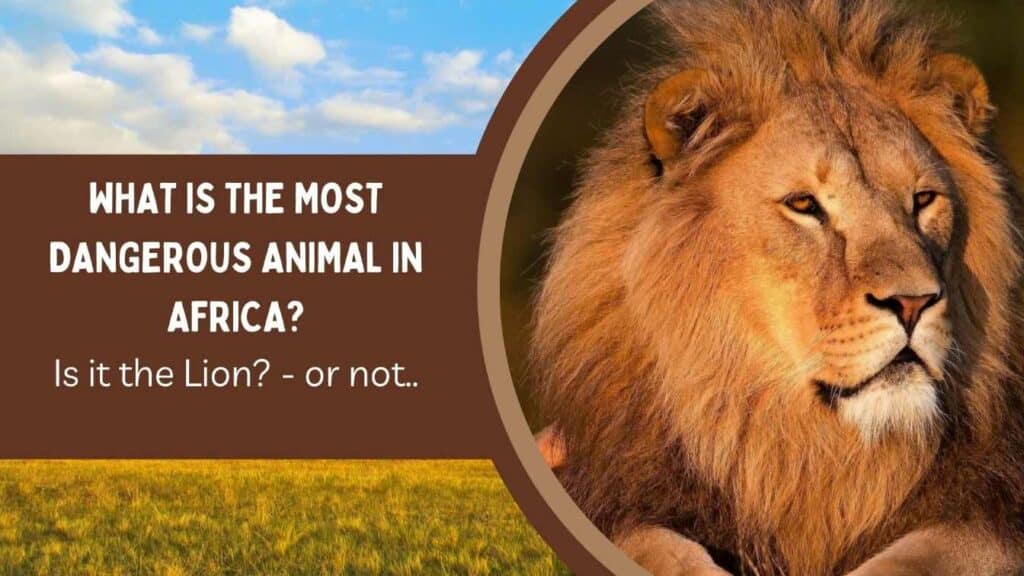
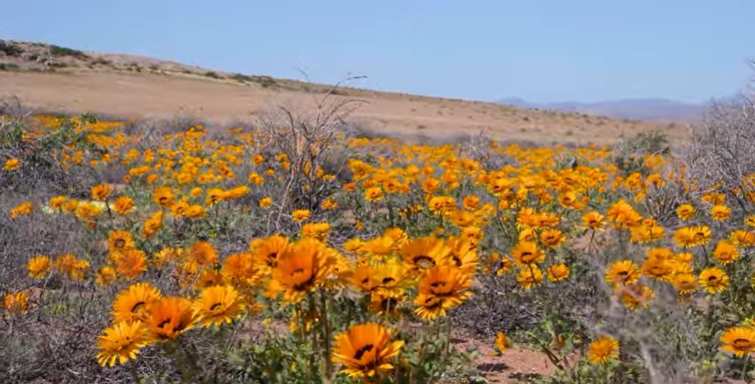
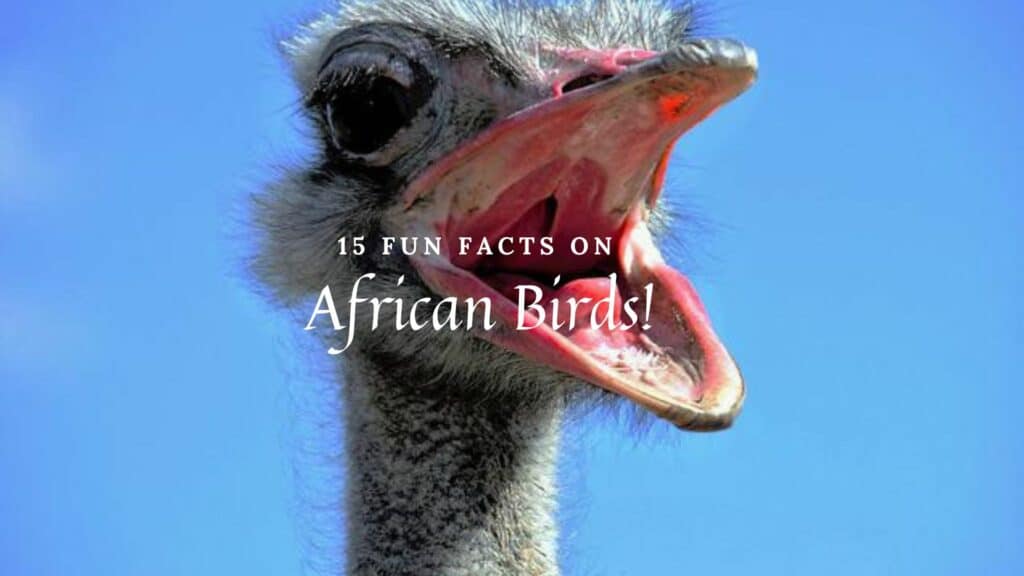
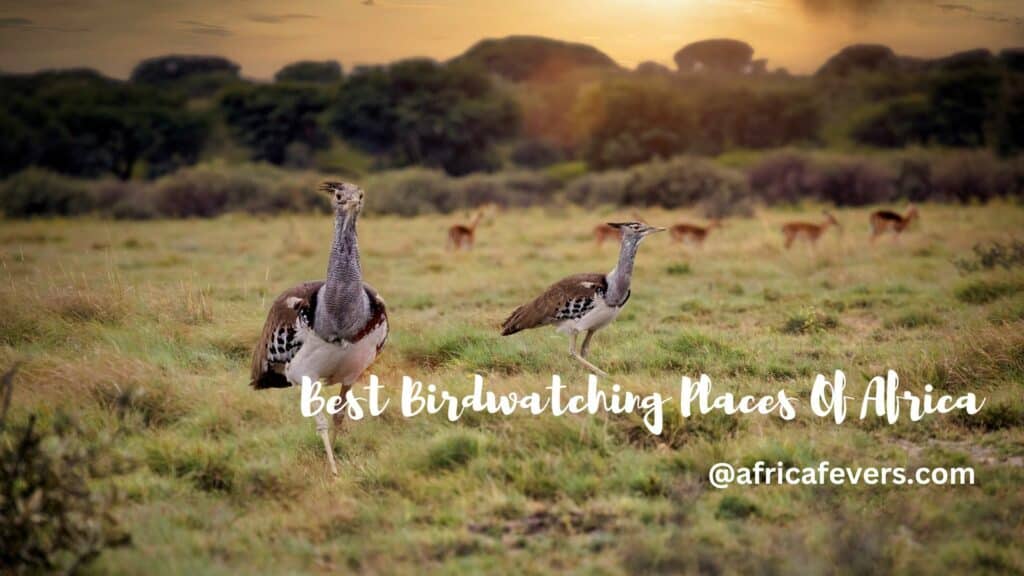
Hi Lizzy, This article was really eye-opening! It makes a great point about
natural resources not always leading to economic wealth. Who would
have thought that countries like Seychelles and Mauritius are
richer than Nigeria and South Africa, based on GDP per capita? It
makes me wonder what other factors play a role besides natural
resources.
Bob
Hi Bob!
thank you for the comment!
Yes , I was amazed myself while I was doing the research on this, it is incredible how a countries wealth can depend on so many things besides natural resources!
Factors like good government, internal struggles and politics, evidently wars and healthcare can all play a big role!
Don’t let that stop you to travel to Africa though and enjoy!
Lizzy
Hi, this was pretty interesting to check out. I have a friend that lives in africa in particular Nigeria so I knew that is was a top country but I didn’t know it was number one but it makes sense. I also didn’t know libya was in Africa unless I am missing something and I thought south Africa would be higher on the list but I have no idea.
hI Jake,
Glad to have informed you, yes this top list result is quite surprising, right?
thank you for your comment!
Lizzy